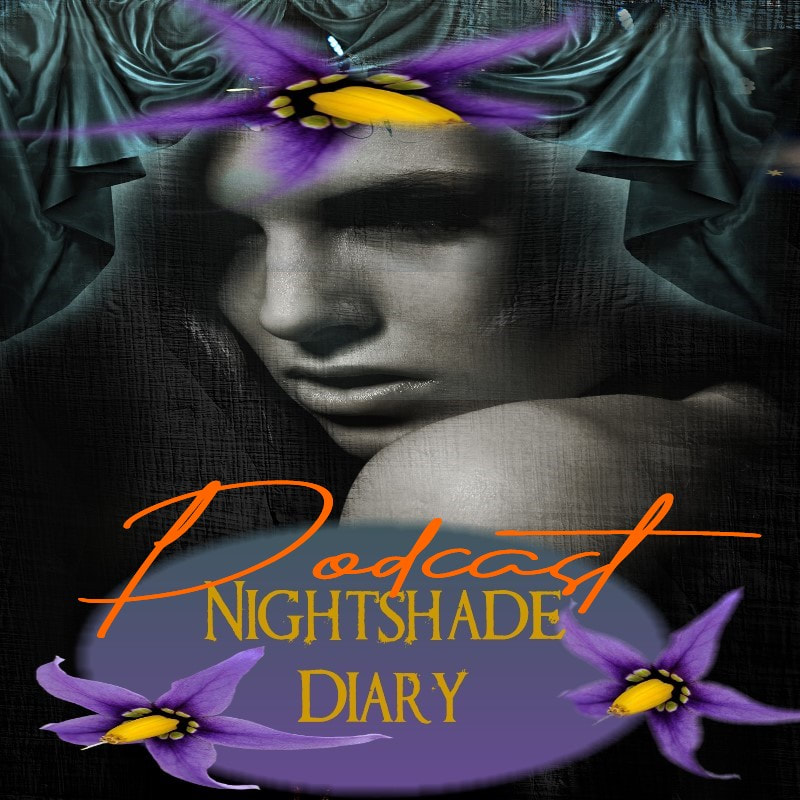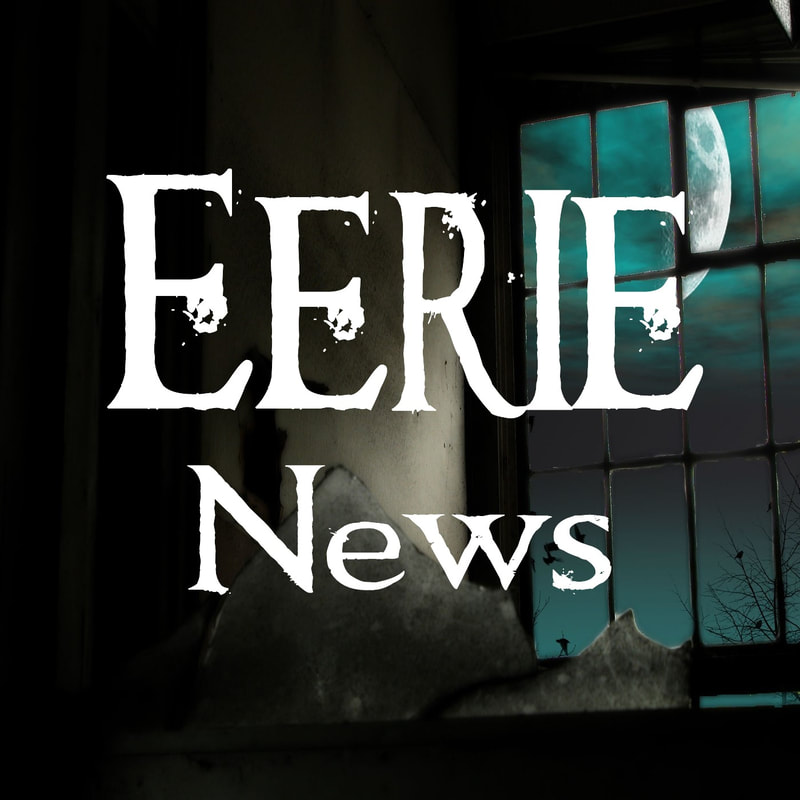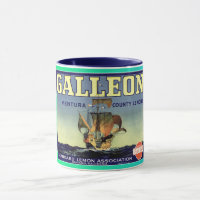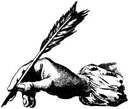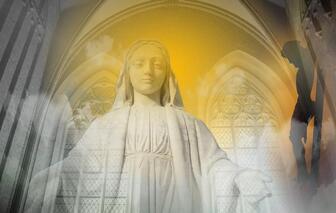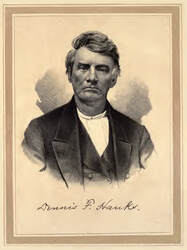 By M.P. Pellicer | Stranger Than Fiction Stories Abraham Lincoln is widely claimed to haunt the White House, but his cousin Dennis Friend Hanks (1799-1892), who lived with him in his childhood home in Indiana, was reputed to haunt the house he owned in Charleston, Illinois. 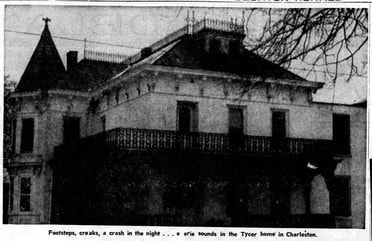 Tycer House c.1970 Tycer House c.1970 In 1965, Mr. and Mrs. Tycers moved into their newly-purchased, 14-room house largely to have a place for the antiques they had collected over the years. The spacious mansion cost them $20,000, and had once been the home of Abraham Lincoln's cousin, Dennis Hanks. It was not long, perhaps a month to six weeks, after the Tycers moved in, and had finished the renovations that they began to feel there was something strange living with them. By 1967, the Tycers ran the Tycer House Museum and had daily tours of the home. The strange happenings varied from curious or annoying, to ominous and startling. In 1970, Dr. Marie Neville Tycer, an Eastern Illinois University English professor gave an interview to the The Decatur Herald. She claimed Dennis was one of the ghosts who haunted the home, and surprisingly within only a month, Mrs. Tycer had committed suicide in one of the upstairs rooms of the house. She left behind her 10-year-old daughter, Neville as an orphan, since Mr. Tycer had died the year before. This is what she was described to the reporter: Footsteps in the hall, and no one there. A crash in the middle of the night, where nothing has fallen. Rapping on the wall, the creak of a locked door opening. Strange sounds echo in the large old house on Jackson Street in Charleston, where Mrs. Marie Tycer lives with her 10-year-old daughter, Neville and the ghost of Dennis Hanks, a cousin of Abraham Lincoln. From the damp, dark slave basement, to the tower behind the house is filled with relics from other ages, and with unexplainable sounds. Footsteps in the hallway are frequent, said Mrs. Tycer, an English professor at Eastern Illinois University. Sometimes she hears the front door open and close, even though it is locked. During a snowy January day there were footprints in the snow outside, footprints that led away from the house, but not toward it. "None of the things that have happened here are frightening or grisly, for us in any way", Mrs. Tycer cautioned. 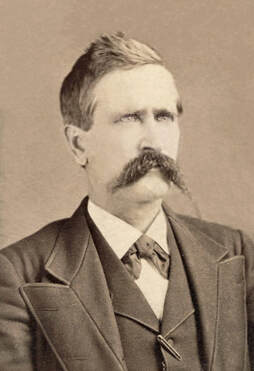 John Pierce St. John, one time owner of the house c.1880 John Pierce St. John, one time owner of the house c.1880 OPENING DOORS Large doors to the dining room cannot be closed," Mrs. Tycer said. "They always open again, slowly and go all the way back to the wall. I was very flippant about the ghost. You see, I don’t believe in them. I even took a candlestick down and walked around in the slave basement". Forster Tycer described where one day he was doing electrical work in the basement when he lost his balance, and narrowly missed falling into the wiring. He said unseen hands pushed him away and saved his life. In a damp, eerie corner of the basement was a small room, with chains on stakes driven into the dirt floor. High barred windows had the bars bent wide apart, which lent credence to the story the house had once been part of the underground railroad. "That night," she continued, "all hell broke loose. There were footsteps in the basement first. I went to see if we had a prowler, but there was nothing. Then footsteps again. I felt it was incumbent on me to go again. But there was nothing there. I went back to bed. There was a tremendous crash. I had been reading, so I am sure it wasn’t a dream." She found nothing had fallen over to have caused the disturbance. Convinced the noise had not been caused by a human agency, she returned to her room and went to sleep. 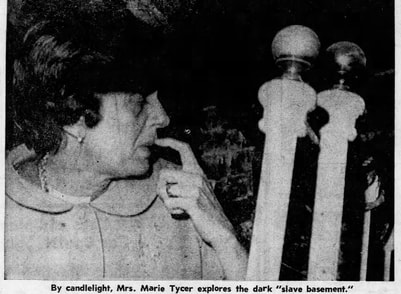 Marie Tycer c.Feb. 1970 Marie Tycer c.Feb. 1970 THE PAST When the Tycers began to trace the history of the 114-year-old house at 218 Jackson, two blocks west of Charleston's courthouse square, they found it had a list of notable owners. Mr. Tycer found the abstract listed the names of Dennis Hanks, Thomas A. Marshall, John Pierce St. John and Isaiah H. Johnston. The first was Dennis Hanks, who hired an agent to purchase the property on his behalf. The agent instead bought the land, along with a log cabin Hanks had built there, and sold everything to Col. Thomas A. Marshall Jr. (1817-1873), one of the founders of the Republican party. The case of ownership came before the court, with Lincoln representing Hanks. Hanks lost the case because it was found he was too young to own land. In 1853, Marshall demolished the cabin, and constructed the house. A lawyer and politician, he was a friend of Lincoln. He also served as Illinois' lieutenant governor, went on to become a state senator and backed Lincoln. Lincoln was a guest in the house in 1858 and in 1861. Marshall who invested in railroad stock, took a loss during the Civil War and was forced to sell the house to John Pierce St. John in 1861. St. John an ardent prohibitionist, would go on to become governor of Kansas. Isiah Johnston owned the house from 1863 to 1907. He was founder of the Second National Bank of Charleston. Dennis Hanks taught Abraham Lincoln to read and write, and described him in an interview as “ponderin’ all the while”. Dennis married Lincoln's step-sister, Sarah Elizabeth "Betsy" Johnston. They were close enough that one day he pressed past other White House visitors and hollered, "Hey, you’re a pretty President, aint’ ye?" He wept at the president’s death but said, "I am dubious about us known’ each other in heaven…" Hanks, a businessman would outlive his cousin for many years. In 1892, he was hit by a wagon and died at his daughter's house in Paris, Illinois. 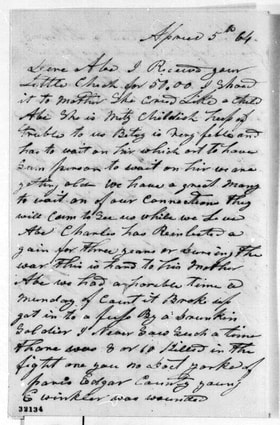 Letter written by Dennis Hanks to Abraham Lincoln c.April, 1864 Letter written by Dennis Hanks to Abraham Lincoln c.April, 1864 THE GHOST The Tycer's neighbors were not casual about "Dennis". A piano playing in the night drove a neighbor girl out the door, when she was spending the night. Another neighbor who borrowed a pillow and blanket when the Tycers were away, felt something brush past her on the stairs. When she reached the bedroom, she felt a presence between her and the bed. In 1967, three raps were heard on the wall. That same day Mrs. Tycer's cousin died in New York. Another time she saw a reflection in an outside window. It was a tall, dark man. She described it as: "He was perfectly solid, not phantasmagoric. He was about six feet tall, with an aquiline profile. He wore an unbuttoned jacket with slightly full sleeves, a vest, trousers and shirt with no collar”. Boys doing yard work did not see him, however she saw his image again in the reflection. Despite having no proof of the identity of the so-called ghost, Marie Tycer called him Dennis. OBITUARY 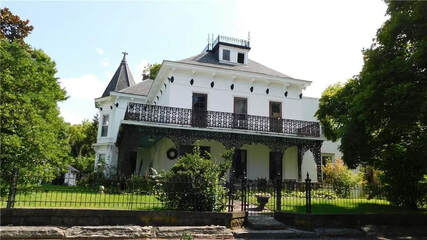 218 Jackson Ave c.2022 218 Jackson Ave c.2022 A year later the Tycer's entire antique collection was auctioned off. By 1974, Jerold "Jerry" Moore with his wife, kids and pets moved in. Mrs. Moore whose birthday was October 31, laughed at all the stories, including the ones the neighbors told them. She said all the ghosts had fled. According to legend, the bloodstains on the floor from Marie Tycer’s suicide continued to reappear no matter how many times they were scrubbed away. In 2008, a self-guided tour was allowed on the property on the occasion of the historic debate between Lincoln and Stephen Douglas, 150 years before. In May, 2022 the Moore family sold it for $125,000. Source - Decatur Herald
0 Comments
Your comment will be posted after it is approved.
Leave a Reply. |
Stranger Than Fiction StoriesM.P. PellicerAuthor, Narrator and Producer Archives
July 2024
Categories
All
|
Stories of the Supernatural
- Stories of the Supernatural
- Miami Ghost Chronicles
- M.P. Pellicer | Author
- Stranger Than Fiction Stories
- Eerie News
- Supernatural Storytime
-
Astrology Today
- Tarot
- Horoscope
- Zodiac
-
Haunted Places
- Animal Hauntings
- Belleview Biltmore Hotel
- Bobby Mackey's Honky Tonk
- Brookdale Lodge
- Chacachacare Island
- Coral Castle
- Drayton Hall Plantation
- Jonathan Dickinson State Park
- Kreischer Mansion
- Miami Biltmore Hotel
- Miami Forgotten Properties
- Myrtles Plantation
- Pinewood Cemetery
- Rolling Hills Asylum
- St. Ann's Retreat
- Stranahan Cromartie House
- The Devil Tree
- Trans-Allegheny Lunatic Asylum
- West Virginia Penitentiary
- Paranormal Podcasts
"When misguided public opinion honors what is despicable and despises what is honorable, punishes virtue and rewards vice, encourages what is harmful and discourages what is useful, applauds falsehood and smothers truth under indifference or insult, a nation turns its back on progress and can be restored only by the terrible lessons of catastrophe."
- Frederic Bastiat
- Frederic Bastiat

Copyright © 2009-2024 Eleventh Hour LLC. All Rights Reserved ®
DISCLAIMER
DISCLAIMER
 RSS Feed
RSS Feed


